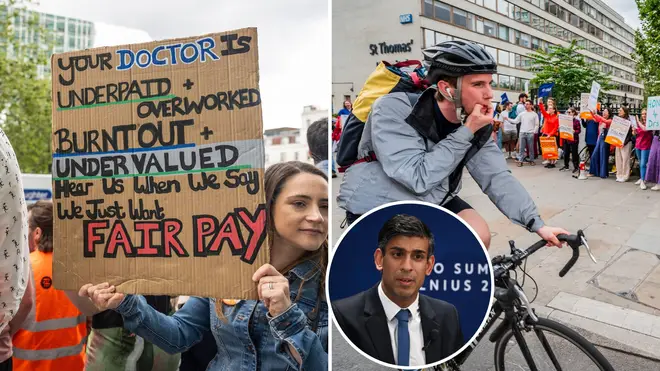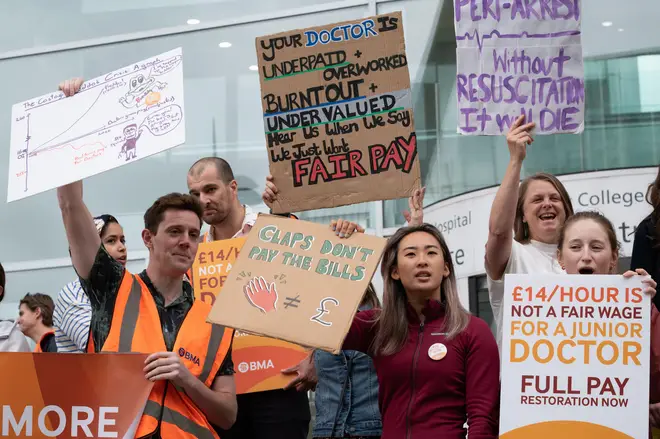
Nick Abbot 10pm - 1am
13 July 2023, 12:33 | Updated: 13 July 2023, 13:50

Millions of UK public sector workers, including teachers, doctors and police will get pay rises of 6% or more.
It comes after Rishi Sunak accepted recommendations of independent pay review bodies. Rishi Sunak said: “Today’s offer is final, there will be no more talks on pay. No amount of strikes will change this decision.”
He said an 'exercise' had been going on for some time aimed at minimising the impact to services.
"The Chancellor and I and the Chief Secretary have engaged in an exercise with departments for a while... We've been taking the time to go through everyone's budgets to make sure that there are areas that, where we can find reprioritisation from, where we may be not spending as much as we had anticipated, that we can shift over to public sector pay without impacting frontline service delivery."
Read more: How much is everyone going to get?
Teachers will be given a 6.5% rise and junior doctors will receive 6%.
Police and prison officers are expected to receive rises of 6% while armed forces personnel will receive 5-6%.
The Government's decision to rule out extra borrowing to fund the pay increases could leave departments forced to find £3 billion from existing budgets.
Ministers expect striking public sector workers to call off industrial action and go back to work in the coming days.
The pay announcement caused four teaching unions to push for strikes to be called off. The ASCL, NAHT, NASUWT, and NEW have been asked to put the new deal to members with a recommendation to accept the significant raise in pay.

“The deal will allow teachers and school leaders to call off strike action and resume normal relations with the government,” a joint statement from Rishi Sunak and the unions said.
Treasury minister John Glen said the Government is taking steps to "deliver sound money while providing a fair pay deal to public sector workers".
He told MPs: "Today I can announce that the Government has accepted the headline recommendations of the independent pay review bodies in full.
"We are doing this whilst abiding by sound money which, as the Chancellor said at Mansion House on Monday this week, is our number one focus."
Mr Glen added that the Government will do "everything we can to tackle inflation", telling MPs: "That means we must take responsible decisions on the public finances, including public sector pay because more borrowing is itself inflationary.
"According to recent IMF estimates, advanced economies which increased public expenditure by one percentage point - which would mean £25 billion for the UK - saw inflation rise by half a percentage point.
"Yet our decision is responsible because, unlike some unsustainable demands, we have delivered awards that don't further fuel inflation and make the inflationary environment worse.
"We said we would accept the outcome of the public pay review bodies and that is exactly what we will do, and we will do so because we are proud of our world-class public servants and owe them a debt of gratitude for their service through the last few years, including through the pandemic."
Earlier, Chancellor Jeremy Hunt said the Government would take "difficult but responsible" decisions on public sector pay.
He told MPs that "it is important to deliver on the Prime Minister's priority to get debt falling and to control borrowing to avoid adding inflationary pressures and risk prolonging higher inflation".
"That means taking difficult but responsible decisions on the public finances, including public sector pay, because more borrowing is itself inflationary," Mr Hunt said.